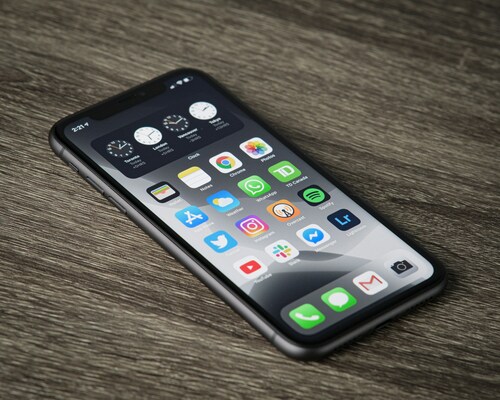
In recent years, AI music generators have made a significant impact on the music industry, offering creators an innovative way to compose and produce music quickly and efficiently. Whether you’re an aspiring musician, a content creator, or a professional composer, AI music generators offer a wealth of possibilities to enhance and simplify the music creation process. These tools leverage artificial intelligence and machine learning algorithms to generate original compositions, melodies, and soundscapes based on user inputs.
In this article, we will explore the various options available related to AI music generators, including the different platforms, features, and functionalities that can help artists, filmmakers, game developers, and businesses produce high-quality music with ease. Linkhouse
1. Types of AI Music Generators
AI music generators can vary greatly in terms of functionality, output quality, and the degree of user control. Understanding the different types of AI music generators is key to selecting the right tool for your needs. Below are the most common types of AI music generators:
a. Melody Generators
Melody-focused AI music generators are designed to help users create melodies quickly and easily. These tools often provide users with the ability to input a few parameters, such as the desired mood, genre, or key, and the Options Related to AI Music Generator a melody that fits the criteria. Some tools offer full control over the melody’s structure, while others may suggest several variations to help users select the one that best suits their project.
Examples: OpenAI’s MuseNet and Google’s Magenta Studio
b. Full-Track Composers
Full-track AI generators create complete compositions, including melody, harmony, rhythm, and instrumentation. These tools can generate entire songs, including all instrumental layers and sometimes even lyrics, in a variety of genres. Many full-track AI music generators allow users to tweak the generated music, adjusting tempo, instrumentation, or adding their own custom elements to the track.
Examples: Aiva Technologies, Jukedeck (now part of TikTok)
c. Loop and Sample Generators
These AI generators focus on creating short musical loops and samples, which are especially useful for electronic music producers and content creators. Users can input specific parameters like genre and mood, and the AI will generate short segments of music (e.g., a drum loop, bassline, or melody) that can be used as building blocks for larger projects. These tools are typically used in genres like hip-hop, EDM, and experimental music.
Examples: Amper Music, Soundraw
d. Real-Time Music Adaptation
Some AI music generators can adapt and change the music in real time based on user interactions. These are particularly popular in gaming and interactive media, where the music changes based on gameplay events or user input. The AI can generate music that dynamically responds to the game’s environment, creating an immersive experience for players.
Examples: Eno (from Brian Eno) for interactive soundscapes in video games, AI-driven music for VR/AR experiences
2. Key Features and Functionalities of AI Music Generators
When selecting an AI music generator, understanding the features it offers can help you determine which tool best meets your creative needs. Here are some of the most common features:
a. Genre Customization
Most AI music generators allow users to choose from a variety of genres, such as classical, jazz, pop, rock, electronic, or film scores. This feature ensures that the generated music matches the intended style or atmosphere of the project. Some platforms even provide more granular control, enabling users to choose specific sub-genres, such as “ambient electronic” or “symphonic orchestra.”
b. Mood and Emotion-Based Music Generation
Another exciting feature is the ability to generate music based on mood or emotion. Whether you’re looking for a piece that’s “uplifting,” “sad,” “energetic,” or “romantic,” many AI music generators offer mood-based options. This can be particularly useful for creators who want to evoke specific emotional responses in their audience, such as in films, advertisements, or video games.
c. Tempo and Key Control
Adjusting the tempo and key of a piece of music is essential for ensuring that it fits a specific project. Many AI music generators provide the flexibility to modify these elements, allowing users to fine-tune the composition. This feature is particularly useful for those who need a specific rhythm or feel for a song.
d. Custom Instrumentation
Some AI music generators allow users to select specific instruments or even entire orchestral arrangements. Users can experiment with different instrument combinations, such as strings, percussion, or electronic synths, to create unique and tailored compositions. This feature adds a layer of customization that can make the generated music sound more professional or fit better with the desired soundscape.
e. Real-Time Collaboration
Certain AI music generators are designed to facilitate collaboration between multiple users. These platforms enable musicians, producers, and other creators to work together in real-time, sharing compositions, making adjustments, and offering feedback. Real-time collaboration is especially valuable for teams working remotely or across different time zones, as it streamlines the creative process and enhances productivity.
f. Integration with Other Software
Many AI music generators are designed to integrate seamlessly with digital audio workstations (DAWs) and other music production software. This integration allows users to easily export AI-generated compositions into their existing workflow, adding further layers of production, mixing, and mastering. This functionality is especially important for professional musicians and sound designers.
3. Popular AI Music Generator Platforms
The market for AI music generation tools has expanded rapidly, offering a variety of platforms for both beginners and professionals. Below are some of the top platforms that provide users with the ability to create music using AI technology:
a. Amper Music
Amper is a user-friendly AI music generator aimed at content creators, filmmakers, and advertisers. It allows users to create royalty-free music by selecting parameters like genre, mood, and instrumentation. Amper is particularly valuable for those who need high-quality music quickly for video content.
b. Aiva Technologies
Aiva is a highly advanced AI music composer designed for professional use in industries such as film scoring, game development, and advertising. The platform uses AI to create symphonic and orchestral music, making it ideal for creators in need of cinematic soundtracks.
c. OpenAI’s MuseNet
MuseNet is a deep learning model developed by OpenAI capable of generating music in a wide range of genres, from classical to pop to jazz. With MuseNet, users can create music with multiple instruments and even generate compositions with complex arrangements. MuseNet is perfect for those who need versatile music creation with minimal input.
d. Magenta Studio
Magenta Studio, developed by Google’s Magenta project, is an open-source platform for generating music using machine learning. It offers a suite of tools that allow users to create melodies, harmonies, and even entire compositions. This platform is designed for musicians who want to experiment with AI-generated music and is highly customizable for a variety of musical styles.
e. Soundraw
Soundraw is an AI music generator that allows users to create music by selecting a mood, genre, and length. It offers high customization, allowing users to fine-tune the generated track by adjusting specific elements such as tempo, melody, and instrumentation.
f. Endlesss
Endlesss is an AI-powered music creation and collaboration platform that is focused on live and real-time music jamming. It is perfect for musicians who want to improvise and collaborate with others remotely. Endlesss uses AI to help generate loops and musical ideas in real-time, enabling seamless and collaborative music-making.
4. Choosing the Right AI Music Generator for Your Needs
With so many AI music generation platforms available, choosing the right one depends on several factors:
- Purpose: Are you creating music for personal projects, professional use, or commercial applications? Some platforms are tailored for specific industries like film scoring or advertising.
- Control: Do you need complete control over the composition, or are you looking for a tool that generates music quickly with minimal customization?
- Collaboration: Are you working solo, or do you need a tool that enables real-time collaboration with other musicians or creatives?
- Budget: Some AI music generators are free, while others offer premium features that require a subscription or purchase. Consider your budget before choosing a platform.
- Ease of Use: Choose a platform that suits your skill level. Some AI music generators are designed for beginners, while others cater to experienced musicians and sound designers.
Conclusion: The Future of AI Music Generation
AI music generators are revolutionizing the way music is composed, produced, and shared. With an ever-growing range of options and platforms available, creators can explore new creative possibilities while saving time and effort. Whether you’re a hobbyist looking to experiment with music or a professional in need of rapid music production, AI music generators provide powerful tools that make the music creation process faster, easier, and more accessible than ever before.
By understanding the different types of AI music generators, their features, and the platforms available, you can select the perfect tool for your creative needs and unlock a new world of musical possibilities.






